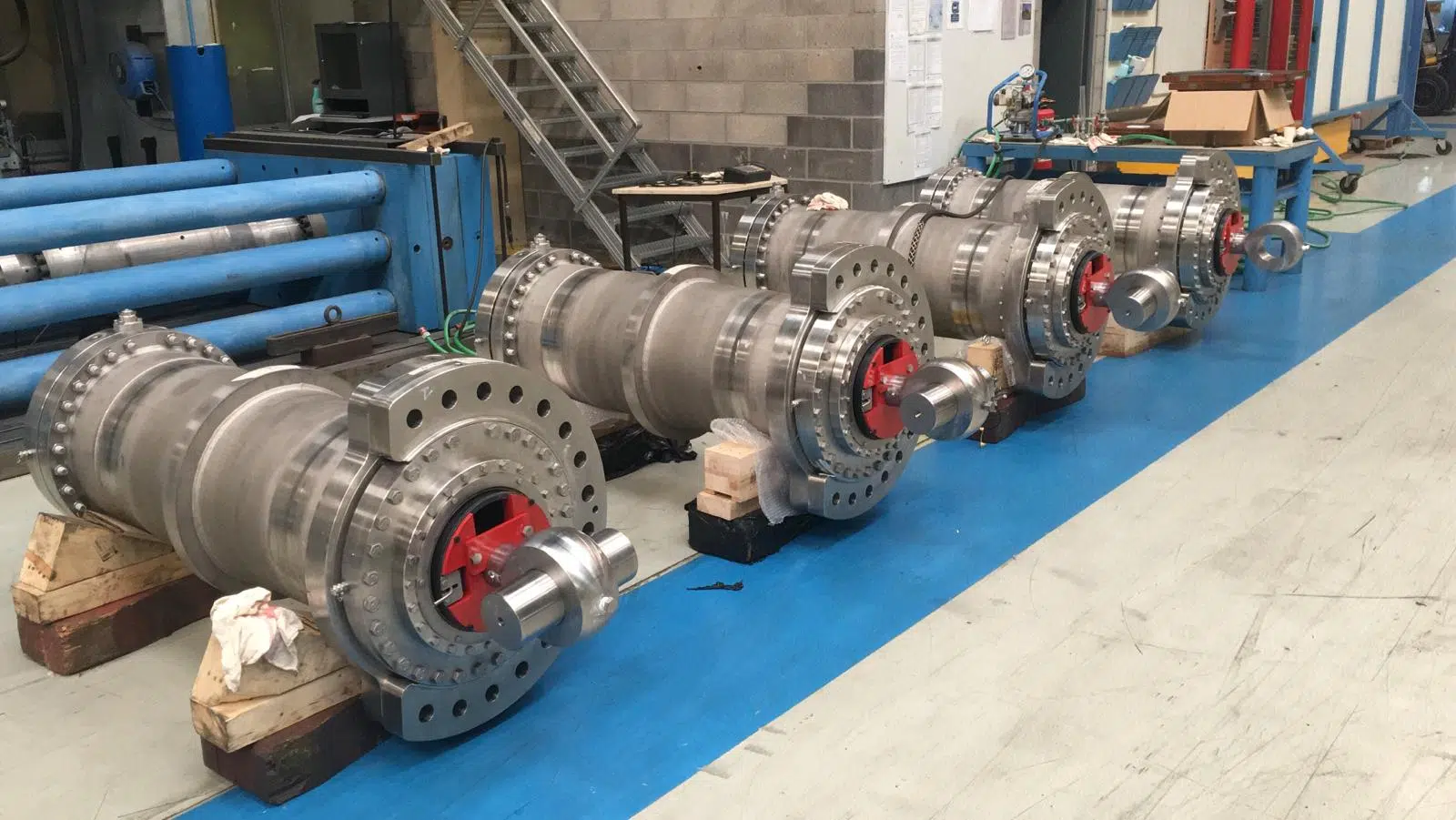In industrial and marine environments where corrosion and contamination are major concerns, all-stainless steel hydraulic cylinders offer a robust and durable solution. Manufactured entirely from high-quality stainless steel, these cylinders are resistant to chemical aggression, salt water and extreme conditions, guaranteeing reliable performance and long life even in the harshest environments.
How all-stainless steel hydraulic cylinders work
Like standard hydraulic cylinders, all-stainless steel cylinders operate on the principle of converting hydraulic power into linear motion. The difference lies in the materials used in their construction. All-stainless-steel cylinders are made from high-quality stainless steel components, such as AISI 304 or AISI 316, which offer exceptional resistance to corrosion and aggressive chemicals.
Advantages of all-stainless steel hydraulic cylinders
All-stainless steel hydraulic cylinders offer many advantages that make them particularly suitable for demanding applications:
- Corrosion resistance: They resist attack from aggressive chemicals, salt water and corrosive atmospheres, considerably extending their service life.
- Hygiene: Stainless steel is non-porous and easy to clean, making it ideal for applications where hygiene is paramount, such as in the food and pharmaceutical industries.
- Durability: They can withstand harsh operating conditions, extreme temperatures and heavy loads without warping or cracking.
- Safety: Their corrosion resistance ensures reliable performance and minimizes the risk of failure, contributing to the safety of operators and equipment.
Applications for all-stainless steel hydraulic cylinders
All-stainless steel hydraulic cylinders are used in a wide range of applications where corrosion resistance and durability are essential, including :
- Food industry: To order food processing machines, conveyor systems and packaging equipment.
- Pharmaceutical industry: To power pharmaceutical production machines, filling systems and sterilization equipment.
- Chemical industry: For controlling valves, pumps and reactors in chemically aggressive environments.
- Oil and gas industry: For powering drilling, production and process equipment in corrosive offshore environments.
- Marine industry: to control winches, rudders and stabilization systems in difficult marine conditions.
